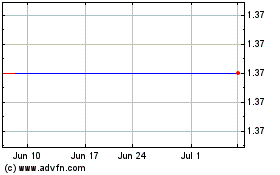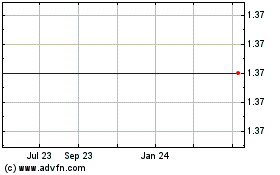Looking to soothe recent concerns about the climate for foreign
investment in Hungary, Hungarian Prime Minister Gordon Bajnai said
the country is and will remain an attractive destination for
overseas capital.
"Hungary is friendly and Hungary has to be friendly," Bajnai
said in an interview with Dow Jones Newswires.
"The government is committed to foreign direct investment and we
are supporting that," he added. "Wherever we have any way to
influence decisions related to foreign direct investment, we are
trying to promote fair, transparent, legally clear procedures."
Bajnai, whose government has pulled the Hungarian economy from
the brink of collapse through a series of deep spending cuts and
structural reforms, is in Washington for three days of meetings
with top policy makers and investors. Later Thursday, he will
address the U.S. Chamber of Commerce and meet a group of financial
investors. On Friday, he will sit down with Vice President Joe
Biden, Treasury Secretary Tim Geithner and White House Budget
Director Peter Orszag.
His visit comes amid recent worries that Hungary may be less
open to foreign investment. Last month, a U.S. broadcasting company
and an Austrian investment fund lost licenses to operate Hungarian
radio stations in an auction process they say was unfair and
politically motivated. The companies, Indianapolis-based Emmis
Communications Corp. (EMMS) and Accession Mezzanine Capital LP, are
taking legal action.
Foreign direct investment is crucial to the Hungarian economy,
which is expected to remain in recession through next year. Bajnai
said Hungary boasts the highest per capita foreign direct
investment in the central and eastern Europe. More than half a
million Hungarians are employed by majority foreign-owned
companies.
But last month, nine ambassadors to Hungary, including the U.S.
envoy, complained that non-transparent behavior could turn off
potential investors. And a group of U.S. lawmakers from Indiana
have introduced a resolution urging Hungary to treat investors
fairly.
Bajnai acknowledges the concerns. He has been critical of the
Hungarian broadcast regulator's decision on the radio licences,
which he said "was not entirely going in the public interest." But
he said the government was not involved in the decision because the
regulator, ORTT, is an independent body.
"There are court cases at the moment and I'm sure the courts
will make the right decision and I can't influence their decision;
I don't want to influence that," Bajnai said.
He said it's not clear that Emmis would have won the auction
anyway because its proposal was "relatively mediocre."
"I'm concerned about the quality of the procedure and not about
who is winning," he said. "What is important for me is that the
procedure is transparent and fair."
Bajnai, 41, has implemented a host of spending cuts and budget
reforms since taking office in April. The program, which helped
secure a $25 billion loan package from the International Monetary
Fund, appears to have stabilized Hungary's economy.
The forint has been stable for months, the country's credit
default swap spreads have narrowed, and Hungary isn't using the IMF
loan now. The fiscal 2010 budget passed this week would bring the
country's budget deficit down to 3.8% of gross domestic product, a
level that would keep Budapest on good terms with the IMF but that
critics say isn't achievable.
After contracting an expected 6.7% this year and 0.6% in 2010,
Bajnai expects the economy to expand by close to 4% in 2011 and
2012. Growth, however, is contingent on a pick-up in Hungary's key
European export markets. Exports comprise 80% of the country's
GDP.
"I think the worst is over... but volatility is still very
strong," Bajnai said.
Bajnai said Hungary will decide early next year about a
potential return to the eurobond market.
"We have to be very prudent and keep the house in balance
between forex funding and domestic currency funding for the budget
because of the potential volatility the exchange rate. Currently
it's very stable," he said.
He said it is critical for the forint to remain in a range that
hurts neither the retail borrowers nor the country's exporters.
"Today we are in that range."
Bajnai won't stand for re-election when Hungarians go to the
polls next spring, and the Socialist Party he represents is widely
expected to lose to the center-right Fidesz party.
He said he hopes that whoever takes over next year follows
"common-sense economic policies," resists the urge to follow
short-term economic remedies, and remembers that Hungary is
competing internationally.
"Don't fall for economic populism because that can divert the
country again," he said.
He expressed confidence that the next government won't stray
from the current fiscal path because doing so would risk Hungary's
vital relationships with the IMF and the European Union and
potentially hurt the holders 1.7 million foreign-currency
denominated retail loans in Hungary.
"I don't think any politician would risk doing unreasonable
policies," he said.
-By Henry J. Pulizzi, Dow Jones Newswires; 202-862-9256;
henry.pulizzi@dowjones.com
(Margit Feher in Budapest contributed to this article.)
Emmis Communications (NASDAQ:EMMS)
Historical Stock Chart
From Mar 2024 to Apr 2024

Emmis Communications (NASDAQ:EMMS)
Historical Stock Chart
From Apr 2023 to Apr 2024
